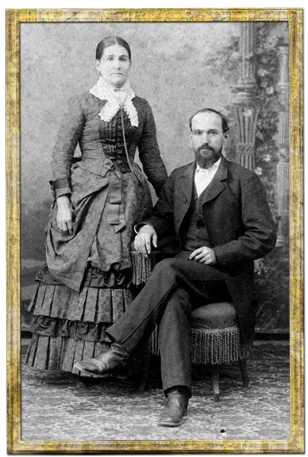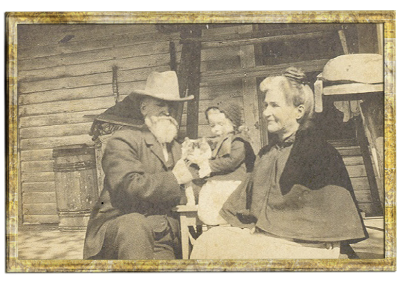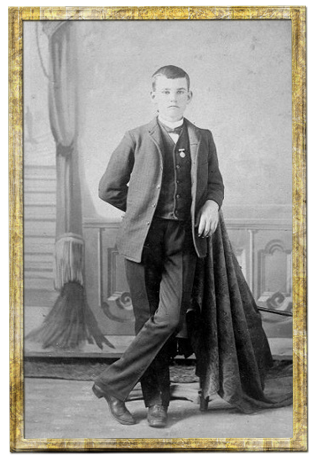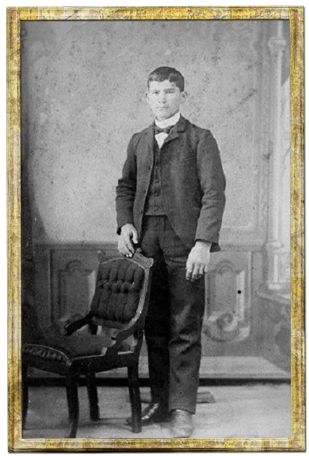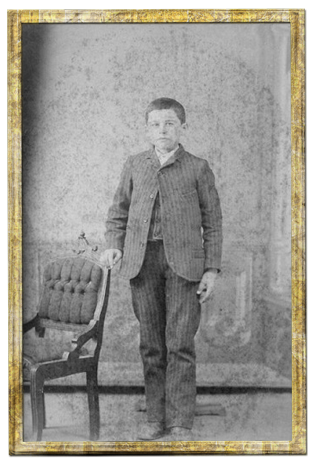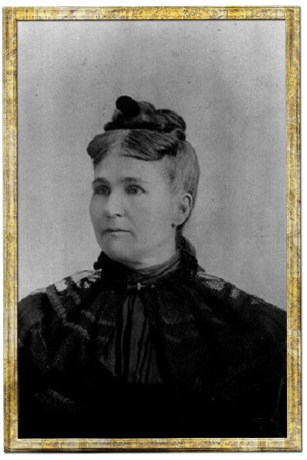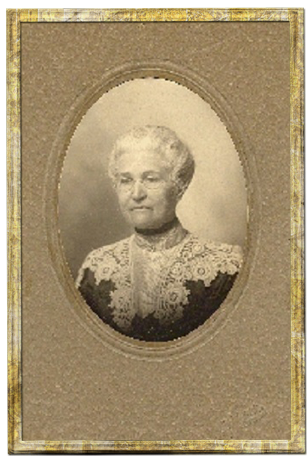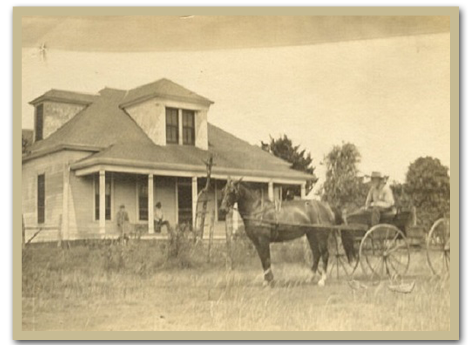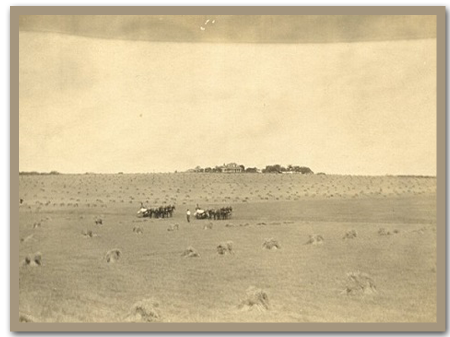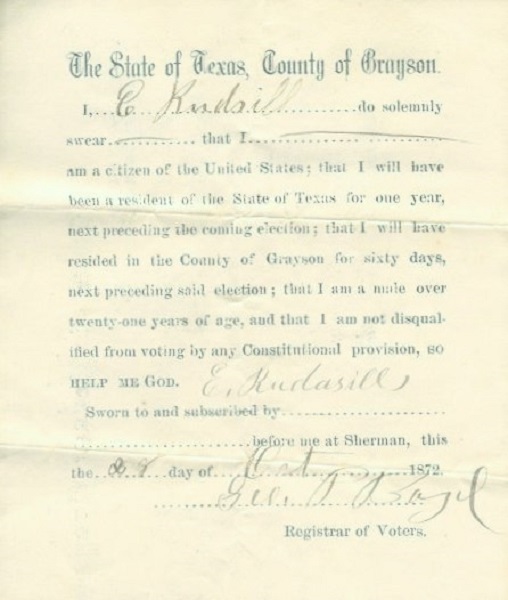Lead Opinion by Talbot1. Divorce ;206 — Preliminary Matters — Injunction.
In suit for divorce and to establish wife’s right to property, denial of temporary injunction with respect to control of property held, not prejudicial, especially as the appeal was from an order made in vacation on a preliminary hearing.
2. Husband and Wise 133(l) — Wipe’s Separate Property.
In suit for divorce, evidence held insufficient to show that the property which the wife sought to establish as her own was her separate property.
3. Trusts <44(3) — Parol Trust in Land.
To establish a parol express trust in land, the proof must be dear and satisfactory.
4. Trusts <372 (3) — Enforcement — Stale Demands — Evidence.
In wife’s suit for divorce claiming certain land as her separate property, evidence held to* support trial court’s finding that husband’s claim of trust was not a stale demand.
5. Divorce <207 — Custody of Property Pending Suit.
Where wife sued for divorce and to establish land as her separate property, and husband set up express parol trust in him, it was improper, pending outcome of suit, to commit property to husband’s charge, since he was an interested party, in view of Vernon’s Sayles’ Ann. Civ. St. 1914, art. 2129, as to receivers, notwithstanding broad powers of court, in suits for divorce, to make equitable orders.
6. Divorce <201 — Equitable Powers of Court.
Statute conferring on trial court, or judge thereof, in divorce case, power to make such temporary orders respecting property and parties as shall be deemed necessary or equitable, does not confer unlimited power and discretion to make any such order.
Appeal from District Court, Grayson County; Silas Hare, Judge.
Suit by Permalla C. Rudasill against Emanuel Rudasill and others. From interlocutory order, complainant appeals. Appointment of defendant Emanuel Rudasill to take charge of the property involved set aside, and cause remanded.
Head, Dillard, Smith, Maxey & Head, of Sherman, for appellant.
Wood, Jones & Hassell, of Sherman, for appellees.
Appellant sued appellee, Emanuel Rudasill, who will hereinafter be called appellee, for divorce and an adjustment and settlement of their property rights. Later and before the beginning of the term of the court to which the suit was returnable, three sons of appellant and appellee were made parties defendant by an amended petition; but their presence in the suit seems unimportant in determining the questions raised on this appeal. The petition alleges, in substance, that appellant and appellee were married in Grayson county, Tex., in February, 1871, and that they have lived together in said county ever since that date; that almost from the time of said marriage appellee has acted toward appellant in a harsh and overbearing manner; that on numerous occasions appellee cursed appellant and abused her in various ways; that during the last few years appellant has been in a weak, nervous, and run-down condition of health, and that during said time appellee's conduct toward her has been so harsh and abusive as to greatly aggravate her condition and render the same much more serious than it otherwise would have been; that appellee's harsh and abusive treatment has permanently impaired appellant's health, and if persisted in will continue to impair her health and greatly shorten her life. It is further alleged that, at the time appellant married appellee, she was a widow and had two sons, J. M. and C. A. Tait; that appellee has had a particular aversion to these sons of appellant, and during the last few years has frequently threatened to kill them, and has forbidden them to visit appellant or to enter upon her premises; that appellee's threats to do physical violence to her said sons have gradually become more violent, until appellant is in constant dread that they will be put into execution, which dread creates in appellant a serious nervous condition, which has undermined and will continue to undermine her health; that during the last few years, and up to the time of the filing of this suit, appellee has frequently falsely stated to divers persons that appellant's mind was affected, and that he contemplated having her sent to a lunatic asylum, which charges are without foundation, but have had the effect, in connection with other facts alleged, of greatly aggravating appellant's condition aforesaid, and rendering her living with appellee unbearable and insupportable; that on account of appellee's said cruel treatment appellant did in the month of May, 1918, permanently leave appellee, and has ever since remained away from him, and intends to continue to so remain away. The petition further alleges that, at the time appellant and the said appellee were married, appellant was the owner, as her separate property, of 363 acres of land situated in Grayson county, Tex., a part of the Ira S. Hightower survey, and described in deed from J. II. Weaver to her under her then name of Permalla Tait, dated September 27, 1870; that during all of their married life appellant and appellee have made their home upon the said separate property of appellant, and appellee has had exclusive control and management thereof, and has collected and appropriated all the proceeds arising therefrom. The petition further alleges the ownership by appellant and appellee of certain community property, which need not be described. The record also discloses that appellee is in possession of several thousand dollars worth of personal property, some of which is claimed by appellant to be her separate property. Appellant prayed that, pending the suit, she be given the exclusive possession and management of the 363 acres of land alleged to be her separate property, and that appellee be enjoined from entering upon said premises, and from in any manner interfering with such exclusive possession, management, and control by appellant; that she be granted alimony; that the marriage of appellant and appellee be dissolved; that the alleged separate lands of appellant be set aside to her as her separate property; that she receive the rents and revenues arising from said 363 acres of land during the years 1916-17 and 1917-18, and that she be given one-half of the community property.Appellant by supplemental petition prayed that if, upon a hearing of her application for injunction, the court should be of opinion that the injunction prayed for should not be granted, then that a receiver be appointed. The court set the case down for special hearing in chambers on the matters asked for by appellant pending the final disposition of the suit, at which time appellee filed his answer, in which he denied each of the allegations in appellant's petition alleged by her as grounds for a divorce; he admitted that he and the three sons of appellant and appellee, namely, W. S., S.E., and Pearl Rudasill, had cultivated the lands claimed by appellant as her separate property for the years 1916-17 and 1917-18 jointly, all sharing in the proceeds thereof without any fixed share as to each, as they had done since they became of age, with the knowledge, consent, and acquiescence of appellant; he denied that the 363-acre tract of land claimed by appellant as her separate property was in fact her separate property, but that the same was the joint property of himself and appellant in equal and undivided portions by virtue of a contract and agreement between them, made prior to the date of their marriage and the purchase of the property; that said 363 acres of land claimed by appellant as her separate property constituted the homestead of appellant and appellee, and as head of the family, he was in lawful possession thereof, and was entitled to occupy the same, and to receive the proceeds arising therefrom until appellant was divorced from appellee, and their property rights adjudicated by a final decree of the court; that appellant left appellee and their home without his knowledge, consent, or connivance, and without just cause; that appellant was old and inexperienced in the management of the farm, and incapable of managing the same; that appellee and their two sons, W. S. and S.E. Rudasill, were breaking the land and preparing to put it in wheat for the coming season; that said land had been planted solely to wheat for a long number of years, and it was necessary to continue to prepare said land; otherwise, the land could not be sown in wheat. He prayed that appellant's injunction to put her in possession of said premises be denied on preliminary hearing, that her prayer for divorce and partition of the property be denied upon final trial, and that the property be partitioned in accordance with his claims, and for general relief.
The appellees, W. S. and S.E. Rudasill, filed a general denial and special answer, in which they adopted the answer of their father, Emanuel Rudasill, in so far as it applied to them. They alleged possession of said place and cultivation thereof, and enjoyment of the proceeds jointly with their father, Emanuel Rudasill, with the knowledge, consent, and acquiescence of appellant, their mother. They claimed no other right, title, or interest in the land. On September 21st, the court, after hearing the evidence, entered a decree in substance, denying appellant's prayer for injunction, and ordered that appellee retain possession of the real and personal property involved in this litigation, upon his giving bond in the sum of $5,000, conditioned that he would preserve the property, cultivate the lands, and hold the property and lands subject to the further orders of the court, and also file an inventory and appraisement of all the property in his possession. From this interlocutory order appellant appeals.
The contention of appellant is that the court erred in refusing appellant's application for an injunction against the appellees, restraining them from entering upon, taking, and holding possession of the land alleged to be her separate property, and from interfering with appellant's right to manage and control the same, because (1) a wife is entitled to an injunction to prevent interference by her husband with the sole management, control, and disposition of her separate property, given her by the act of the Legislature of April 4, 1917 (chapter 194 [Vernon's Ann.Civ.St.Supp. 1918, art. 4621]); (2) in order to justify the court in refusing an injunction to the wife against such interference by the husband, upon the ground that the husband is claiming an interest in the property, it must appear that such claim will probably be sustained, and that the evidence in this case makes it clear that there is no reasonable probability that the appellee can fasten upon the lands alleged to be appellant's separate property a trust, either express or implied, in his favor; (3) to establish a trust, whether express or implied, by verbal evidence upon the legal title conveyed by deed, it requires proof, both clear and satisfactory, especially after the lapse of a long time, and that such was not the character of proof in this case; (4) it is clear from the evidence that appellee's claim of a trust is a stale demand, and can furnish no basis for denying to appellant the management and control of her separate property, and conferring it upon her husband, Emanuel Rudasill, pending this litigation; (5) if Emanuel Rudasill's claim of a trust is not a stale demand, it is, in effect, a suit for specific performance, and barred by our ten-year statute of limitations, regardless of any recognition or repudiation of appellant; (6) under the undisputed evidence there is no trust in Emanuel Rudasill's favor for the money used in refunding to appellant's sons, J. M. and C. A. Tait, the $2,000 of their money used by appellant in the original purchase of the land; (7) the fact that the homestead of appellant and appellee is upon the separate property of the wife does not give the husband, Emanuel Rudasill, the right to manage and control said property and appropriate the revenues therefrom, and deprive appellant of the management, control, and benefits given her by the act of 1917.
We shall not undertake to discuss in detail the several propositions advanced by appellant, but shall content ourselves with a brief expression of what we conceive to be the rules of law which should govern us, in view of the character of the hearing had at which the order appealed from was made and the evidence adduced.
1. We are of the opinion that, since this appeal was taken from an order made in vacation at a preliminary hearing had for the sole purpose of protecting the interests of the litigants during the pendency of the suit and until a trial of the case could be had upon its merits and final decree entered, we would not be warranted in saying that the court, on the evidence offered, committed reversible error in refusing the injunction prayed for by appellant. The evidence is undisputed that on September 27, 1870, J. H. Weaver conveyed to appellant, who was then Permalla Tait, a widow, by deed, with clause of general warranty, the 363 acres of land in controversy, and that appellant and Emanuel Rudasill were married in February, 1871, and shortly thereafter established their homestead upon said land; but upon the question of whether or not, before and at the date of the purchase of said land, it was agreed between appellant and appellee that the property should belong to them jointly, and upon the question of whether or not, in pursuance to such agreement, appellee paid out of his own separate funds a part of the purchase money for said land, the evidence is conflicting. The deed executed and delivered to appellant for the land recites a cash consideration of $3,500 and a note for $1,000, made by Eph Carpenter, who was the father of appellant, and appellant testified that she brought with her from the state of Louisiana to Texas, before her marriage with appellee, $4,500 in gold, $3,500 of which was used in paying the cash consideration recited in said deed, and $200 of which was used in making a payment on the Carpenter note. She further testified that the remainder of $800 due on said note was paid by her father as a gift to her, and that said $4,500 was the proceeds of a crop of cotton made by her deceased husband, James Tait, in Louisiana, and that $2,000 thereof belonged to her two sons, J. M. and C. A. Tait. Appellant further testified that soon after she and appellee were married he demanded of her that she convey the land in question to him, without giving any reason therefor; that this she refused to do, and that she at no time since her marriage with appellee recognized that he had any interest in the land. Appellant also testified that the land in controversy was deeded to her by J. H. Weaver before she and appellee became engaged to be married.
On the other hand, appellee testified, in effect, that he was acquainted with appellant before they moved to Texas; that they became engaged in July or August, 1870, and were married in Grayson county on February 7, 1871; that before they were married he, with appellant's father, rode over the country a good deal, hunting for a place to purchase, and finally agreed on the land in controversy; that he and his wife's father, Eph Carpenter, made the trade for the land; that he and his wife talked the matter over before they agreed to purchase the place; that the deed was executed September 27, 1870, and he and his wife were engaged some time before that; that he talked it over with his wife before the place was bought, and the place, when purchased, was to be their home and owned in equal portions; that appellant told him what money she had on hand, and that it belonged to her and her two boys, and that the boys' money was to be used in buying the land, and paid back to them; that she was unwilling for the place to be purchased without his first agreeing to it. He further said that he and Eph Carpenter closed the trade for the place; that the deed was made in Judge Hare's office; that Eph Carpenter, appellant's father, paid over the money; that he gave him $350 in gold that was his money, which was a part of the money paid for the place; that he and Mr. Carpenter told Judge Hare how the place was being paid for, and that Judge Hare suggested that the deed had better be made to appellant, as they were not then married; that he paid 250 of the $1,000 note that was given by Eph Carpenter as part of the purchase price for the place; that he gave the money to Eph Carpenter; that the first payment marked on the back of the note is $500, January 25, 1871, which was paid by Mr. Carpenter; that there was also endorsed on said note a credit of $250, paid June 19, 1871; that he gave Mr. Carpenter that money to pay on the note; that he did not recall when the final payment was made, but it was paid by Mr. Carpenter; that his wife did not pay any part of that note; that it was paid off by her father and him; that the part that Mr. Carpenter paid was given to him and his wife, as he understood it; that he heard Mr. Carpenter say the note was all paid when he made the last payment; that Mr. Carpenter said he had paid it with the money appellee had given him and his own money. He further testified:
"My wife and I considered that we had used $2,000 belonging to the Tait boys in the purchase of the land. I paid that back to them by buying land for them. The record shows that I bought 320 acres of land for J. M. and C. A. Tait. They have it now. No one had anything to do with the purchase except myself. The total consideration for the land was $4,500, all of which I paid. It was understood that I was accounting to them for the $2,000 that was used in the original purchase of the place, that my wife and I were living on, and $2.500 was made on that place; that is, on the 363 acres (claimed by appellant as her separate property). My final report as guardian of the Tait boys shows their receipt for $6,500. That included the money paid in land and other moneys. I heard my wife's testimony that I demanded a deed from her to the 363 acres. I never did demand a deed from her at any time. I never thought it was necessary. I always thought I owned as much of the place as she did. I never knew of any reason why I should demand a deed from her. I have been managing the property all of the time. I made the contract for the place before we were married. I have been managing the place from that time to this, and my rights in it have never been called into question. My wife has never questioned my rights, nor my interest, in the place. In so far as I know, my wife never contemplated a separation from me until this divorce suit was filed. I am now undertaking to put the place in condition to raise the crops for next year. We have always raised wheat on the place; a little oats, not much. Unless the land is gotten ready right after the harvesting is done, you don't get a good crop of wheat. You can't make a good crop unless you break the land early."
On cross-examination appellee testified:
"The $350 that I gave Mr. Carpenter [to pay on the land] I brought with me from Louisiana, where I worked and earned it. I farmed in Louisiana, and had earned some money there, and besides that my wife's brother and I had carried a bunch of horses back there and made some money on them. My wife is mistaken in saying that her father paid $800 and she paid $200 of the note Eph Carpenter gave in part payment for the land in controversy. Mr. Carpenter first paid $500, and I gave $250 for him to pay; then he paid the balance. When 1 settled as guardian with the Tait boys, I took their receipt for $6,500. I only received in cash for them as their guardian the sum of about $2,000. The receipt, as I understood it, represented $4,500, the consideration for the place that I purchased for them, and the $2,00 that I used of their money in purchasing the 363 acres in controversy. In buying this 320 acres for the Tait boys, I was undertaking to buy an equal amount in value as we paid for the 363 acres in controversy, and thought that the latter place belonged to me and my wife. My wife left the place last May, 1918."
Mrs. Butler Carpenter, the widow of one of appellant's brothers, testified that she was living in the family of her father-in-law, Mr. Eph Carpenter, in 1869 or 1870; that she remembered a visit to Mr. Eph Carpenter by Mrs. Rudasill (appellant); that during that visit Mr. Carpenter told his daughter, Mrs. Rudasill, to go on home and behave herself, and use Mr. Rudasill all right; that he was a good man, and ought to have a deed to the 363 acres of land in controversy, and he had paid for it with his own money, reciting how much, but that she did not remember the amount, but that Mr. Carpenter said that appellee ought to have a deed to it, as he had paid for more than half of it; that she could not remember distinctly what Mrs. Rudasill's reply was, but thought she said something about the deed being in her name. On cross-examination she further testified that the occasion of Mrs. Rudasill being over there at her father's was that her father sent for her to come up there to try to get matters adjusted pleasantly between her and her husband; that is, the little trouble they had gotten into at that time about some of the property, something about the crops; that the state of her feelings towards Mrs. Rudasill was the best in the world.
William S. Rudasill, one of the appellees, testified as follows:
"I have just heard the testimony of Mrs. Butler Carpenter, with reference to what transpired at my grandfather's house. I was present at that time; went with my mother. Grandpa told me to go and get her, and bring her up there to see him. I was then about 20 years old. That was in 1889, 1890, or 1891; I am not sure just what year. The occasion of our going to grandfather's was, Charlie and Minor [Tait] had been there on the place, and my father wanted them to go on their own place, and my mother said they ought to stay and control part of it [the home place]. I do not remember what was said between them; cannot go into details. Pa told me to go and see grandpa, and see him about this matter, and maybe he could adjust the differences. I carried my mother up there, and my grandfather said to her, `Mallie, Will told me about this trouble you all are having down there. Now, Emanuel ought to control that place, and will control it as long as I live. He paid for more of it than you did, and you should have given him a deed to it long ago, and as long as I live he will control it. Go on home and behave yourself.'"
This witness further testified that when his grandfather, Eph. Carpenter, told his mother (the appellant) that appellee had paid for most of the place, she replied that the deed was made to her, and that the place ought to be hers; that his grandfather then said, "If the deed is made to you, you did not pay all of it; he paid as much or more than you did, and he ought to have some title to it." He further said he did not remember to have ever heard appellant claim the land as her separate property; that he was born on the place, and has been on it most of the time during his life.
The proposition of appellant that a wife is entitled to an injunction to prevent interference by her husband with the sole management and control of her separate estate, given her by the act of April 4, 1917, assumes that in the case at bar the property in controversy is unquestionably the separate property of appellant. Such assumption is not, we think, warranted by the evidence. Whether the 363 acres of land in question Is the sole separate property of appellant, or jointly owned by her and her husband, by virtue of an agreement entered into before and at the time the deed conveying same to appellant was executed, and whether or not appellee paid a part of the purchase money for the land in pursuance of such agreement, were controverted issues under the evidence. That a deed absolute on its face may have a parol trust, or terms and conditions not expressed therein, ingrafted upon it by verbal testimony, is well-settled law. The difficulty experienced by the court, when such a question is presented, is the determination of the quantum of proof necessary to establish such a trust.
The trust here claimed is not a resulting trust, but an express trust in the land as a result of an agreement between appellant and Emanuel Rudasill to buy the land jointly; and in order to establish a parol express trust in land the rule requires, it seems, that the proof be clear and satisfactory. There are several cases which deny, under this rule, the sufficiency of the testimony of one interested witness to establish a trust unless supported by corroborating circumstances. Whitfield v. Diffie, 105 S.W. 324; Smalley v. Paine,
62 Tex. Civ. App. 52 ,130 S.W. 739 ; and cases therein cited. In Neyland v. Bendy,69 Tex. 711 ,7 S.W. 486 , it was held that evidence that satisfies a Jury of the existence of the parol trust is sufficient, and that it is error to charge that such a trust can only be ingrafted on a deed absolute by the clearest and most positive proof. It is not necessary that the trust be established beyond a reasonable doubt. "Such quantum of proof is not required in any case." Howard v. Zinipelman, 14 S.W. 59. In the case just cited Mr. Justice Gaines, after reviewing our cases upon the question, lays down the rule that"It would be proper to instruct the jury as to the legal effect of the conveyance, and that the parties to it are presumed in the first place to have intended that it should have that effect, but that they should find that a trust was intended, provided the other evidence be sufficient to overcome that presumption, and to reasonably satisfy them that such was in fact the intention."
In Baylor v. Hopf,
81 Tex. 637 ,17 S.W. 230 , it was held that it was not error to charge the jury that a parol trust in land might be proved by preponderance of the evidence. In the view we take of the case it would be improper to discuss the evidence and express any opinion as to its weight, further than is absolutely necessary to a proper disposition of this appeal. We have quoted or stated very fully the testimony, and it must suffice for us to say that from our analysis and construction of it we would not be authorized to reverse and set aside the order appealed from, especially since this is an appeal from an order made in vacation and upon a preliminary hearing, on the ground that the evidence makes it clear that there is no reasonable probability that Emanuel Rudasill can fasten upon the land involved in the suit the trust set up and claimed by him upon a final hearing of the case.We are further of the opinion that the evidence does not warrant us in holding on this appeal as a matter of law that Emanuel Rudasill's claim of a trust is a stale demand; nor would we be warranted in holding that the effect of his allegations is to present a suit for specific performance, and is therefore barred by our statute of limitations of ten years. The fact that the home stead of appellant and appellee is, and has been for a great number of years, upon the 363 acres of land in controversy, has been regarded as immaterial, and not necessary to be considered in determining the questions discussed and passed upon.
2. As has been seen, the order from which this appeal is prosecuted directed that appellee retain possession of the real and personal property involved in this litigation upon his giving bond in the sum of $5,000, conditioned that he would preserve the property, cultivate the lands, and hold the property subject to the further orders of the court. This action of the court is regarded by the appellant as the appointment of a receiver, and is assigned as error, on the ground, among others, that Rudasill was an interested party to the suit, and, under the statute of this state, disqualified to act as such receiver. This contention is well taken. The appellant prayed that, in the event the injunction asked for upon the facts alleged by her was denied, a receiver be appointed to take charge of and manage the property involved in the suit during its pendency. Article 2129 of Vernon's Sayles' Statutes declares that "no party, * * * or any person interested in any way in an action for the appointment of a receiver, shall be appointed receiver therein," and while it has been held in this state that an appointment of an improper person, or one disqualified by reason of interest, does not render the appointment void, yet such appointment is contrary to the express provision of the statute referred to and voidable. That the practical effect of the court's action in authorizing the appellee to retain possession of the land and all the personal property involved in this suit, to be managed and controlled under the direction of the court, was to appoint the said Rudasill a receiver of said properties, can hardly be denied. It may be true that the power conferred upon a trial court in this state in a divorce case by the statute which declares that, "pending any suit for a divorce the court, or judge thereof, may make such temporary orders, respecting the property and parties as shall be deemed necessary and equitable," is a broad one; but we do not think that the trial court or judge thereof is authorized by that statute to ignore the express provision of article 2129, and appoint as a receiver a defendant in the suit who is vitally interested in its determination.
Our construction of the statute conferring upon the trial court, or judge thereof, in a divorce case, the power to make such temporary orders respecting the property and parties as shall be deemed necessary or equitable, is that it empowers such court or judge to make, in a case calling for it, some one or more of the temporary orders commonly applied for and made in such cases, such as the granting of a temporary injunction, or the appointment of receiver, and does not confer unlimited power or discretion to make any such order independently of the well-known remedies referred to as the court or judge may see fit to make. It is undoubtedly true that the learned judge who made the order complained of in this case believed that it was for the best interest of all the parties concerned, and it may be conceded for the purposes of this opinion that that is true; but, Emanuel Rudasill being disqualified to act as receiver, his appointment is contrary to our statute, and should be set aside.
For the reasons indicated, the appointment of Emanuel Rudasill to take possession of the property involved in this suit, and control and manage it during the pendency thereof, is set aside, and the cause remanded.

